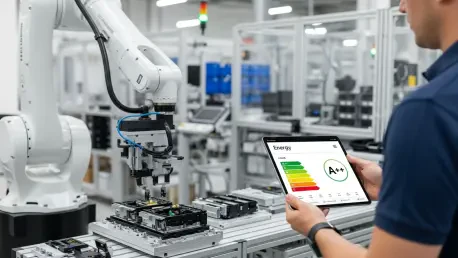
The urgent global transition toward renewable energy has created an insatiable demand for storage solutions that are not only effective but also sustainable and economically viable, a challenge that a groundbreaking class of sodium-sulfur batteries is now poised to meet. The development of

A Winter of Volatility: Understanding New England's Energy Squeeze A potent combination of frigid temperatures and soaring natural gas prices sent a shockwave through New England's wholesale electricity market in December 2025, culminating in the most significant price spike in over a year. An

As global manufacturing floors hum with the activity of over four million industrial robots, a critical oversight in the push for sustainability has become increasingly apparent: the absence of a universal standard for measuring their energy consumption. While consumers can easily compare the

The vast and intricate network of the national energy grid is undergoing its most significant transformation in a century, driven by the global imperative to achieve net-zero emissions and the escalating demands of a digitized economy. This shift places unprecedented pressure on an infrastructure

In a significant move highlighting the burgeoning international interest in Canada's renewable energy landscape, Calgary-based NU E Power Corp. has announced a landmark agreement that will see its key Alberta solar and energy storage assets transferred to a prominent South Korean private equity

A powerful winter storm descended upon the German city of Wuppertal, bringing daily life to a standstill as snow and near-freezing temperatures created a cascade of disruptions across municipal, economic, and commercial sectors. The weather event, which blanketed the city on January 29, has done